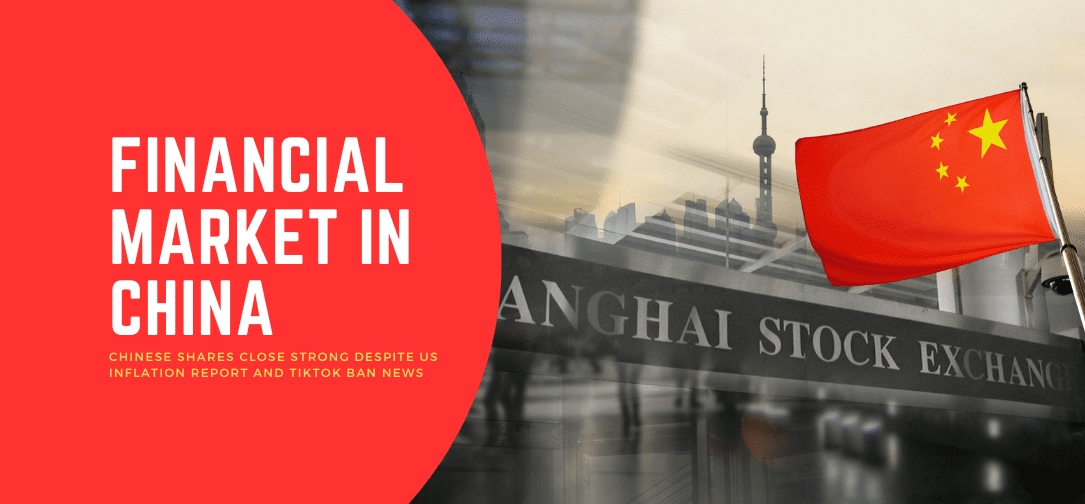Despite the negative influence of the US inflation report and the potential TikTok ban, Chinese shares closed strong on Friday, 15th March. The stock market exhibited resilience, with the Shanghai Composite Index and Shenzhen Component Index experiencing gains. However, certain sectors, such as coal shares, faced losses. Chinese authorities have responded to the market challenges by introducing stricter regulations and oversight measures. These efforts aim to safeguard the integrity and stability of the stock market. While the US inflation report caused caution among investors, the overall impact on Chinese stocks was managed.
Chinese Stock Market Update
Chinese shares closed higher on Friday, defying the negative impact of the US inflation report and the news of a potential TikTok ban. The benchmark Shanghai Composite Index rose by 0.54%, reaching 3,054.64 points, while the Shenzhen Component Index increased by 0.6%, closing at 9,612.75 points. Despite these gains, there were some notable trends within the market.
The non-ferrous metals sector experienced significant gains, driving the overall market performance. However, coal shares faced the biggest losses during this period.
Chinese Authorities’ Market Measures
Chinese authorities have recently taken steps to strengthen regulations and oversight in the stock market. These measures aim to prop up the market and address existing challenges. The China Securities Regulatory Commission (CSRC) is set to increase its monitoring of listed companies, brokerages, and public fund companies. Additionally, the commission plans to accelerate the establishment of “first-class” investment banks.
In an effort to improve the quality of companies listed on the stock market, the CSRC will raise the entry bar for public listings. This move is aimed at ensuring that companies adhere to sound internal control mechanisms, maintain regular corporate governance, and refrain from engaging in financial fraud or misrepresentation.
These stricter regulations are a response to previous findings that highlighted issues with the internal operations of listing candidates. By imposing stricter requirements, Chinese authorities hope to restore investor confidence and maintain fair and transparent practices within the market.
Impacts of US Inflation Report on Chinese Stocks
The release of the US inflation report had a cautious impact on Chinese stocks. The data indicated that consumer prices in February were slightly higher than expected, reducing the possibility of a Federal Reserve rate cut. This led to some apprehension among investors.
The Chinese stock market reacted to the inflation report by declining. Hong Kong stocks edged lower, with the Hang Seng Tech Index experiencing a minor decrease of 0.1%. The Shanghai Composite Index dropped by 0.4%, while the smaller market in Shenzhen saw a 0.3% decrease.
While the stock market is not an accurate representation of the overall economy, it serves as a barometer for investors’ expectations and confidence levels in China’s prospects. The recent decline in stocks reflects the market’s sensitivity to global economic factors, such as inflation.
Note: This article is for informational purposes only and should not be considered investment advice.



































